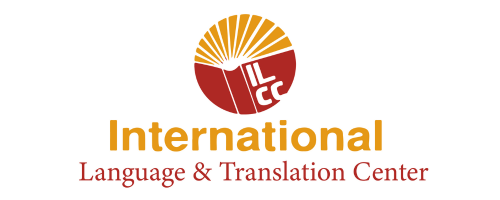How to develop Arabic writing skills
In this article, we will discuss how to develop Arabic writing skills in easy, simple, and uncomplicated ways. In a world where information and communication are constantly accelerating, Arabic writing skills remain essential and critical for expressing thoughts and feelings, and for conveying messages clearly and effectively. Arabic writing is not just a technical skill; it is an art that combines grammar and creativity, as well as rhetorical and expressive techniques.
Developing and improving Arabic writing skills is an ongoing challenge faced by many, whether they are students seeking to improve their academic level or professionals seeking to convey .their visions clearly and attractively. In this article, we will explore some effective ways that individuals can adopt to enhance their Arabic writing skills.
We will cover a variety of tips and techniques, starting from understanding the basic rules of the language to applying effective rhetorical styles. We will also look at the importance of continuous training and practice to achieve continuous improvement in this field.
The Arabic writing skill requires dedication and deep thinking. By exploring the steps and techniques that we will present in this article, we hope to contribute to motivating and guiding you towards achieving a noticeable development in your writing abilities and excellence in expression.
The importance of Arabic writing
Arabic writing holds great importance on several levels, including:
- Enhancing communication: Writing is one of the most prominent means of communication that allows for the clear and accurate transmission of ideas and information. It contributes to the exchange of ideas and knowledge between individuals and societies, which enhances understanding and cooperation between people.
- Self-expression: Writing gives individuals the opportunity to express their thoughts, feelings, and opinions in an artistic and creative way. It allows writers to show their identity and express their personality in a unique way.
- Developing intelligence and thinking: Practicing writing and honing its skills is an intellectual challenge that enhances intelligence and develops mental abilities. It requires concentration, analysis, and organization, and enhances critical thinking and innovation.
- Contributing to cultural heritage: Arabic writing plays an important role in documenting the cultural and literary heritage of Arab peoples. It records historical events and documents customs, traditions, and values, which contributes to preserving and developing cultural identity.
- Developing language skills: Through the practice of writing, individuals learn the rules of language and its correct formulation, expand their vocabulary, and improve their ability to express themselves clearly and concisely.
- Achieving impact and change: Writing can be a driving force for change and influence in society. It enables individuals to spread awareness and influence public opinion, and contributes to stimulating social and political change.
Arabic writing skills
For non-native speakers, there are several Arabic writing skills that they need to learn and master in order to improve their ability to express themselves and communicate in Arabic. These skills include:
- Vocabulary and sentence structure: Learners should acquire new vocabulary and expressions in Arabic, and understand how to use them in different contexts. They should also learn basic sentence structures and how to form sentences correctly.
- Grammar and morphology: Learners should understand the basic grammatical and morphological rules of Arabic, such as declension, distribution, and punctuation. These rules help in building sentences correctly and clearly.
- Reading and language comprehension: Reading is key to language learning and writing skills development. Learners should read texts in Arabic regularly, understand their content, and identify the writing styles used.
- Creative thinking and intellectual organization: Learners should develop their ability to think creatively and enrich the content of their writing with new and innovative ideas. They should also organize their thoughts logically and systematically in the texts they write.
- Use of rhetorical and expressive styles: Learners should learn to use appropriate rhetorical and expressive styles to express their ideas clearly and attractively, such as simile, metaphor, and linguistic formation.
- Review and editing: Learners should carefully review and edit their texts to ensure correct spelling, grammar, and structure, and to improve the clarity and accuracy of their content.
These are some of the essential skills that non-native Arabic speakers need to learn and develop to improve their writing skills in Arabic.
Ways to develop Arabic writing skills for non-Arabic speakers
Developing Arabic writing skills for non-native speakers can be a challenging task that requires effort and dedication. However, it can be achieved by following certain effective methods and steps.
Here are some ways to develop Arabic writing skills:
- Continuous practice: Regular and continuous practice is the foundation for developing any skill, including writing. A person interested in learning Arabic writing should practice writing regularly, whether it be short essays, journals, or even simple exercises.
- Extensive reading: Extensive reading enhances language comprehension, enriches vocabulary, and introduces the writer to different styles of expression and develops their ability to formulate ideas effectively. The learner of Arabic as a foreign language should read different types of texts, including literature, journalism, and academic articles.
- Benefiting from courses and lessons: Learners who want to learn Arabic writing can benefit from courses and lessons available online or at educational centers. These courses may include lessons in grammar, morphology, and improving writing skills.
- Review and improvement: The beginner Arabic writer should be prepared to review and improve their texts regularly. They can ask for feedback from experienced people or native Arabic-speaking friends and use this feedback to improve their writing skills.
- Using educational resources: Educational resources available online, such as blogs, articles, and educational videos, can be used to provide explanations and tips on how to improve Arabic writing skills.
- Interaction with the Arab community: By participating in forums or online groups run or participated in by native Arabic speakers, the learner can improve their writing skills by interacting with texts and exchanging opinions and ideas with others.
- Patience and perseverance: The learner should be prepared to continue learning and developing, and to work hard and patiently to improve their writing skills, as the desired results may not come at first, but with time and perseverance, skills will definitely improve.
Applying these methods and steps regularly can help non-native speakers improve their Arabic writing skills and progress towards independence and confidence in expressing themselves in Arabic.
ILCC
Discover the world of languages and translation with us!
Join us and explore the world of languages and translation with the highest quality and professionalism! On our website, we offer you a unique and distinctive learning experience that allows you to acquire new language skills with ease and enjoyment.
Our center is distinguished by a team of qualified and specialized language teachers who ensure that they provide personal and effective lessons that perfectly meet your needs. Whether you want to learn a new language or improve your current level, we are here to help you achieve your goals smoothly and effectively.
In addition, our website provides accurate and professional translation services, where our team works to provide high-quality and reliable translations in various fields. Whether you need to translate official documents, marketing content, or scientific articles, you can rely on us to provide translation services with the highest standards of quality and accuracy.
On our website, we combine comprehensive language education and distinguished translation services to provide you with a unique and distinctive learning experience. Join us now and start your journey in the world of languages and translation with confidence and determination.
You can contact us on WhatsApp from here → ILCC.
Conclusion
In conclusion, mastering Arabic writing skills requires dedication and continuous effort. Arabic writing is not just a skill, but an art that requires constant practice and development.
By following the tips and steps outlined in this article, any non-native Arabic speaker can improve their writing skills in this language. This includes taking advantage of online courses, reading extensively to increase linguistic and cultural knowledge, and practicing regularly to apply what has been learned.
It is also important to listen to feedback and comments from others, and to constantly interact with written content. The writer should also keep themselves updated and develop their skills by keeping up with developments in the world of writing and publishing.
Ultimately, the writer must be committed to perseverance and persistence in improving their level, with optimism and confidence in their ability to achieve progress and success in the field of Arabic writing.
Through these methods, any non-native Arabic speaker can improve their writing skills and develop their abilities to express themselves and communicate effectively and attractively in the Arabic language.









